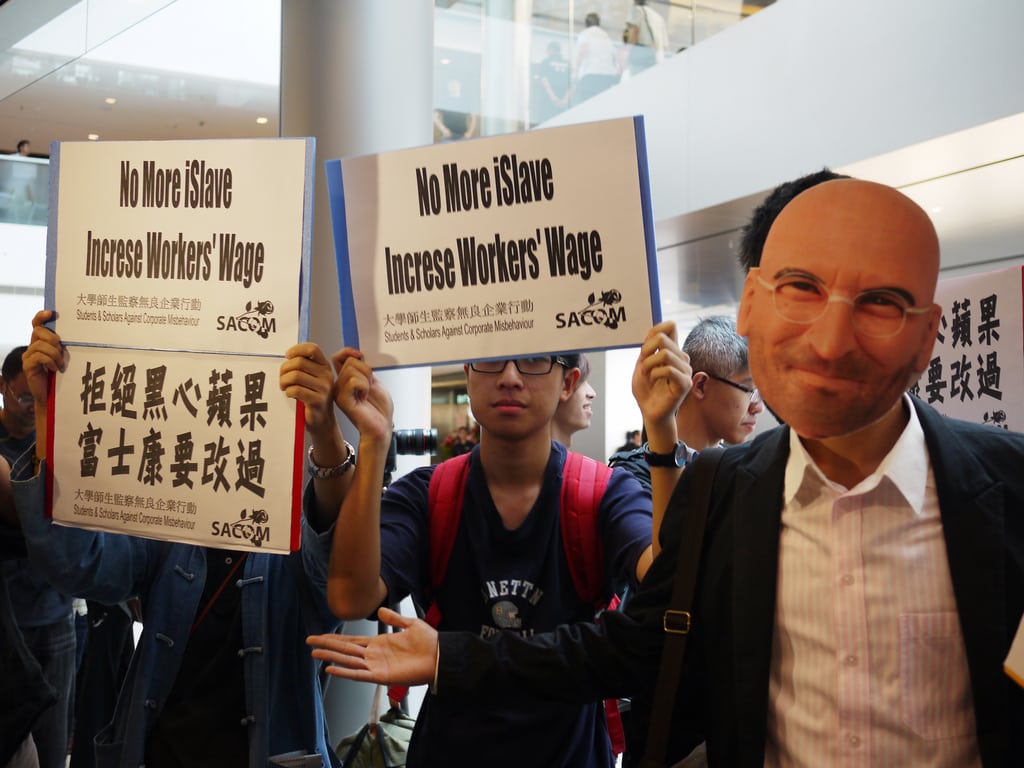 May 25, 2010: Apple opens an investigation into a string of suicides at Foxconn, its Chinese manufacturing partner.
May 25, 2010: Apple opens an investigation into a string of suicides at Foxconn, its Chinese manufacturing partner.
After reports of a ninth death at a Foxconn factory, Apple says it is “independently evaluating” Foxconn’s response. Cupertino vows to take a long, hard look at the facilities that manufacture its products. It’s a tough challenge for Apple to deal with — and Steve Jobs’ controversial comments don’t exactly help.
This post contains affiliate links. Cult of Mac may earn a commission when you use our links to buy items.
Working conditions at Foxconn factories
Working conditions at Foxconn rattled Apple during Jobs’ reign as CEO. The Chinese factories’ operations became one of Cupertino’s biggest controversies, alongside the iPhone 4 “Antennagate” problem, censorship in the App Store, Jobs’ backdated stock options and Apple’s sometimes heavy-handed approach to the press.
What all those situations had in common was that they didn’t bring out the best in Jobs. He was a visionary leader, but could sometimes appear glib in public. That proved especially true when it came to dealing with problems he did not feel comfortable being challenged on.
That’s what happened with the Foxconn suicides. In reality, Apple was far from the only tech company to make its products in China. However, its high level of visibility — and the fact that it successfully marketed itself as the freedom-fighting rebel motivated by making the world a better place — meant that Cupertino became synonymous with the grim news.
A report that one worker committed suicide after losing a prototype fourth-generation iPhone and subsequently enduring bullying by Foxconn security officers did not help
The view of many was summed up by the authors of the 2016 book Becoming Steve Jobs: “How could a company with Apple’s cherubic marketing glow make its devices in Foxconn factories where the drudgery and difficult working conditions resulted in more than a dozen assembly-line workers committing suicide?”
Steve Jobs responds to Foxconn suicides
Jobs was undisputedly brilliant when it came to selling products. But his brusque nature made his comments about the Foxconn situation come across badly. He defended Foxconn shortly after the suicide news broke, calling its factories “pretty nice” and “not a sweatshop” environment. The line that failed the hardest, however, was his comment that, “We’re all over this.” It struck many people as uncaring.
In fact, Apple was all over the problem. After the suicide reports, it organized a task force to deal with the situation. The company quickly put measures into place to prevent the same thing from happening again.
Since then, Apple has worked steadily to improve its supply chain. However, it still faces occasional criticism from labor rights activists and other organizations.
In early 2021, accusations surfaced that several Apple suppliers in China use forced Uyghur labor. In an attempt to expand manufacturing beyond China, Apple moved some iPhone production to India. And the effort to increase Apple manufacturing outside of China continues.
Apple CEO Tim Cook, meanwhile, has been the opposite of Jobs in a lot of ways. While not a product visionary, Cook has been far more outspoken about making Apple a “force for good” in the world. He doesn’t possess Jobs’ rough edges. Cook’s demeanor helps Apple navigate tricky terrain like working conditions in its supply chain.


